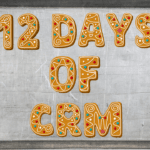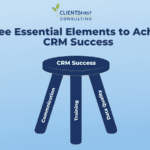Four Ways to Effectively Align Your CRM With Attorney Needs

Every modern law firm is familiar with Customer Relationship Management (CRM) systems, yet many grapple with maximizing their potential. The crux often lies in aligning the tool with attorney needs, ensuring it’s more than just an ornate fixture in the firm’s tech stack. Here’s a deep dive into how to ensure your CRM isn’t just another system but a robust tool that attorneys are eager to use.
1. Simplifying CRM: Less is More
While CRM platforms boast extensive functionalities, the focus should be on what’s immediately relevant. By understanding the unique needs of each attorney or group, the CRM can be tailored to address specific challenges. This could range from automating certain processes to providing data that bolsters business development. Configuring the system based on individual needs, rather than a one-size-fits-all approach, boosts adoption rates.
2. Supporting Seamless Utilization
Dedicating the necessary resources is paramount. Given attorneys’ billable hours, it’s not just about the CRM’s capabilities but also about providing the support needed for them to extract its benefits effortlessly. This might mean investing in additional personnel or tools that integrate seamlessly with the CRM to drive maximum ROI.
3. Building Personalized Value
A CRM’s success is not determined by its mere presence but by how it answers the perennial attorney question: “What’s in it for me?” This involves both showcasing its immediate benefits and training attorneys to extract those advantages. As groups of attorneys find success with the system, the domino effect will lead to wider firm adoption.
4. Essential CRM Features for Attorneys
Based on extensive research and industry collaboration, the following CRM capabilities stand out as especially beneficial for attorneys:
- Comprehensive Contact Details: Updated, thorough information about contacts.
- Relationship Mapping: Insights into which colleague knows a contact or company best.
- Activity Alerts: Automated updates about contacts’ interactions with the firm.
- Efficiency Tools: Features like email signature extraction to populate contact details.
- Mobile Integration: On-the-go access to CRM functionalities.
- Business Development Aids: Insights into potential business opportunities.
- Referral Metrics: Understanding the primary sources of business inflow.
- Automated Reminders: Facilitating timely client communication.
- Dashboards & Reports: Instant access to crucial data insights.
- Pitch Information: Knowledge about ongoing client pitches.
- Quick Contact Entry: Features like business card scanning for efficient data entry.
In Conclusion
While CRM systems have myriad features, their effectiveness is determined by how they’re tailored to attorney needs. Demonstrating the tangible benefits and aligning functionalities with individual challenges is the surest route to harnessing the full potential of CRM in a law firm setting. Remember, a tool is only as good as its relevance to its user. For attorneys, the CRM shouldn’t just be another software but a strategic ally in their professional journey.






